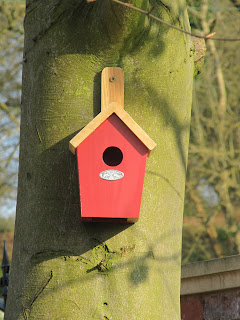Maths was never my forte. It always seemed a barrage of abstract symbols and numbers, and the only weapon I was able to arm myself with was a protractor. Who ate all the pi's? Not me. I understand how a select few might be that way inclined; how the thought of either being wrong or right is comforting. The idea of being held lovingly in the bosom of long division or a quadratic equation as a beacon of logical astuteness, the only way that could rationally and practically explain why x plus y equals... well I don't know, I said I was never very good at this. Obviously, I aligned myself with all those artsy-fartsy subjects, i.e. the ones potential employers don't really have any interest in.
There's an article in today's Daily Mail titled 'Why so many University Challenge champions fail to win in life'. Yes, I laughed too. Two quotes that have been emboldened during the course of this piece are even better. The first states, "I spend a lot of my time having to dumb myself down". The second: 'Winners tend to graduate to mediocrity'. Frankly, there's a simple equation that doesn't add up here: that intelligence should result in success.
It seems obvious enough. But is it? One contestant, John Burke, who helped the Open University to win the show in 1999, is now working as a postman. He says: "I'm certainly capable of a lot more than delivering papers. I've got a lot of other capabilities that I'm not really fulfilling." Another is Thor Halland, a participant of the winning Birkbeck Team of 2003, who 'experimented with cocaine, heroin and LSD in an attempt to 'fix' his brain'. Apparantly a sharp intellect needs 'fixing'. To be honest, I'm still transfixed by the fact that his first name is Thor. So why should intelligence equate success? The notion of being an intellect has always bugged me. People always refer to it as an intrinsically natural state, one that you're either predisposed to at birth or you're not. The fact that we now grow up having, oh I don't know, something termed 'an education' is skimmed over. And the argument that we're all either business-minded or creatively inclined...? That we're all habitually more adept with one side of our brain than the other...? No we're not. I've always said I'm proud to be a humanities student, but that doesn't mean I'm more artlessly gifted with verbs and adjectives than algebra and sums; I just decided at some point, in the grandly pointless narrative of my life, that I preferred abc to 123.
Halland goes on to say: "People like successful people, but they don't really like intelligent people. There's a little bit of jealousy." Really? Surely there has to be a marriage of the two, success and intelligence, at some point? You
have to be intelligent to be a success at the end of the day, don't you? The problem occurs when people think that being academically gifted is going to reap bountiful years of indulgent success. You need to be smart across the board, in all sorts of frustratingly generalised areas - communicatively, technically, geographically, linguistically, pragmatically, etc - if you're going to stand out from the crowd. To expect that you will get ahead due to merely knowing about astrophysics is a little, well, stupid isn't it? Even Jeremy Paxman acknowledges that the kind of person University Challenge tends to attract is a particular character: "It is disturbing how many times students will confide, "It's been my lifetime ambition to get on to University Challenge." You want to scream: For heaven's sake, it's only a bloody quiz.""
If an intellectually bright individual 'fails to win in life', then surely the blame can only really be laid at the aforementioned person? So, not
that bright then?










